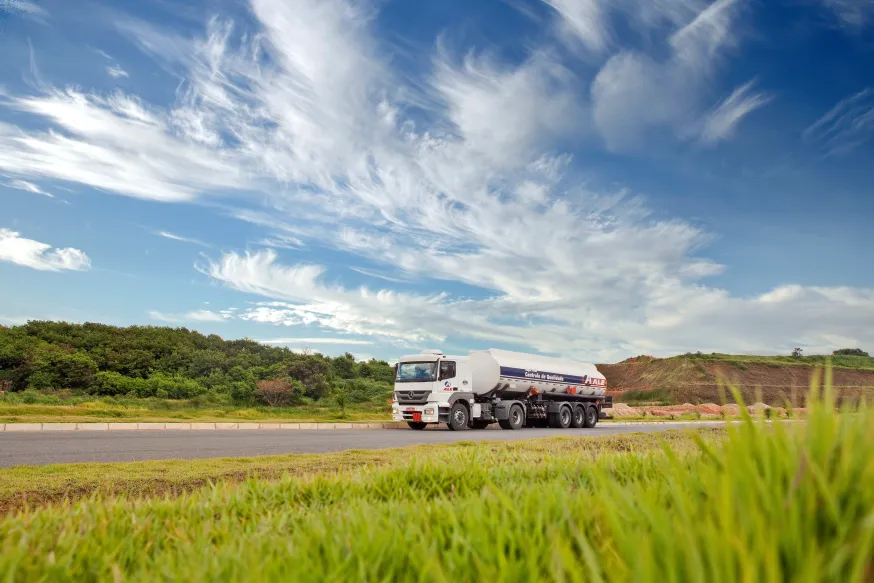A trifecta of sustainability
E-fuel sustainability
E-fuels, also known as electrofuels or synthetic fuels, have emerged as a potential solution for energy storage, for solving the time and location gap between renewable energy production and its consumption, and for seamless re-use of existing transportation and logistics infrastructure. In terms of sustainability, e-fuels therefore offer a unique mix of ecological, social and economic benefits. These synthetic hydrocarbon fuels are produced by using renewable electricity to make carbon dioxide (CO2) or other carbon sources and renewably produced hydrogen (H2) available as a transportable energy carrier. Their potential to address the challenges of carbon emissions, energy transition and socio-economic development makes them a promising candidate on the road to a sustainable future.

Ecological sustainability
E-fuels are characterized by several key aspects of ecological sustainability:
Carbon neutrality and negative emissions: E-fuels offer the prospect of carbon-neutral emissions due to the fact that carbon dioxide is captured during production. It is essential to use renewable energy in the production process to generate the hydrogen. The carbon released during the use of the fuels is therefore offset by the production step and can thus contribute to global efforts to mitigate climate change. If the fuels produced are stored, e-fuels would even be an effective means of achieving negative emissions.
Decarbonization of hard-to-electrify sectors: E-fuels can be used in sectors where direct electrification is difficult, such as aviation, long-haul shipping and chemical processes. By providing clean energy alternatives for these sectors, e-fuels make it easier to move away from fossil fuels and reduce emissions where electrification is not possible.
Integration with renewable energies: E-fuels can serve as a flexible energy storage solution and enable the use of local or temporary surplus renewable energy. This helps to balance out fluctuations from renewable energy sources compared to the consumption profile and improve overall grid stability.
Social sustainability
E-fuels contribute to social sustainability by addressing important social concerns:
Energy supply and access: E-fuels can be produced in regions with abundant renewable energy resources and used in areas with limited access to such resources, as transportation over long distances is possible with minimal energy input. This option supports energy security and thus promotes sustainable development.
Smooth transition: E-fuels offer the potential for a smooth transition to renewable energy in industries and regions that are currently dependent on fossil fuels. By creating alternative employment opportunities in the e-fuels sector, this transition can mitigate socio-economic impacts and promote a smoother transition to sustainable energy systems.
Preserving livelihoods: E-fuels can safeguard jobs in sectors that could be affected by the transition to renewable energy. For example, regions that are heavily dependent on fossil fuels can use e-fuels as a means of maintaining economic stability while switching to cleaner energy solutions.
Economic sustainability
The economic sustainability of e-fuels is reflected in various aspects:
Job creation and economic growth: The production of e-fuels can boost economic growth by creating jobs along the entire value chain, from research and development to production and distribution. Growth potential and innovation go hand in hand.
Integration with existing infrastructure: E-fuels can use existing infrastructure such as fuel distribution networks and combustion engines, greatly reducing the need for major infrastructure adaptation. This compatibility facilitates the transition and supports smooth integration into the existing energy landscape.
Diversification of energy sources: By adding e-fuels to the energy mix, economies can diversify their energy sources and reduce dependence on imported fossil fuels. This increases energy security, resilience and the ability to adapt to changing energy markets.
E-fuels therefore allow a combination of three aspects of sustainability: environmental, social and economic. By effectively tackling carbon emissions, facilitating the energy transition in hard-to-electrify or hard-to-convert sectors and promoting socio-economic prosperity, e-fuels are a promising and versatile pathway to a more sustainable future. As technology, policy and innovation come together, the potential of e-fuels to reshape the energy landscape while promoting a sustainable society will be enhanced.